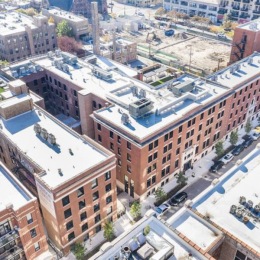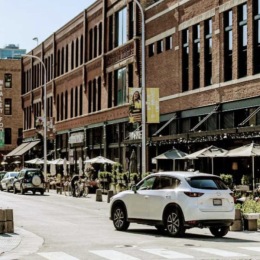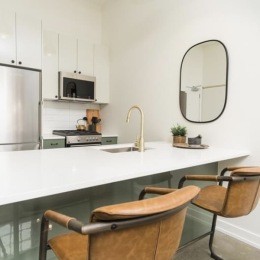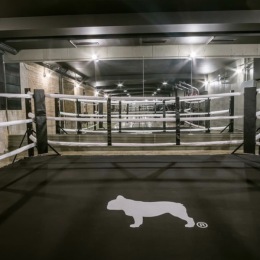Why Chicago's Rental Market Demands Your Attention Right Now
The Chicago apartment rental market has transformed into one of the most competitive landscapes in the United States, with suburban areas now ranking as the toughest rental market nationwide - even outpacing New York City and San Francisco.
Quick Market Overview:
- 54% of Chicago households are renters vs. 46% owners
- Average rent: $2,241 for 748 sq ft apartments
- Suburban competition: 16 applicants per available unit
- City competition: 8 applicants per unit
- Occupancy rate: 94.4% citywide
- Vacancy fill time: 40 days on average
This intense competition stems from business relocations, high occupancy rates, slow construction, and property tax increases of up to 46% in some areas pushing rents higher.
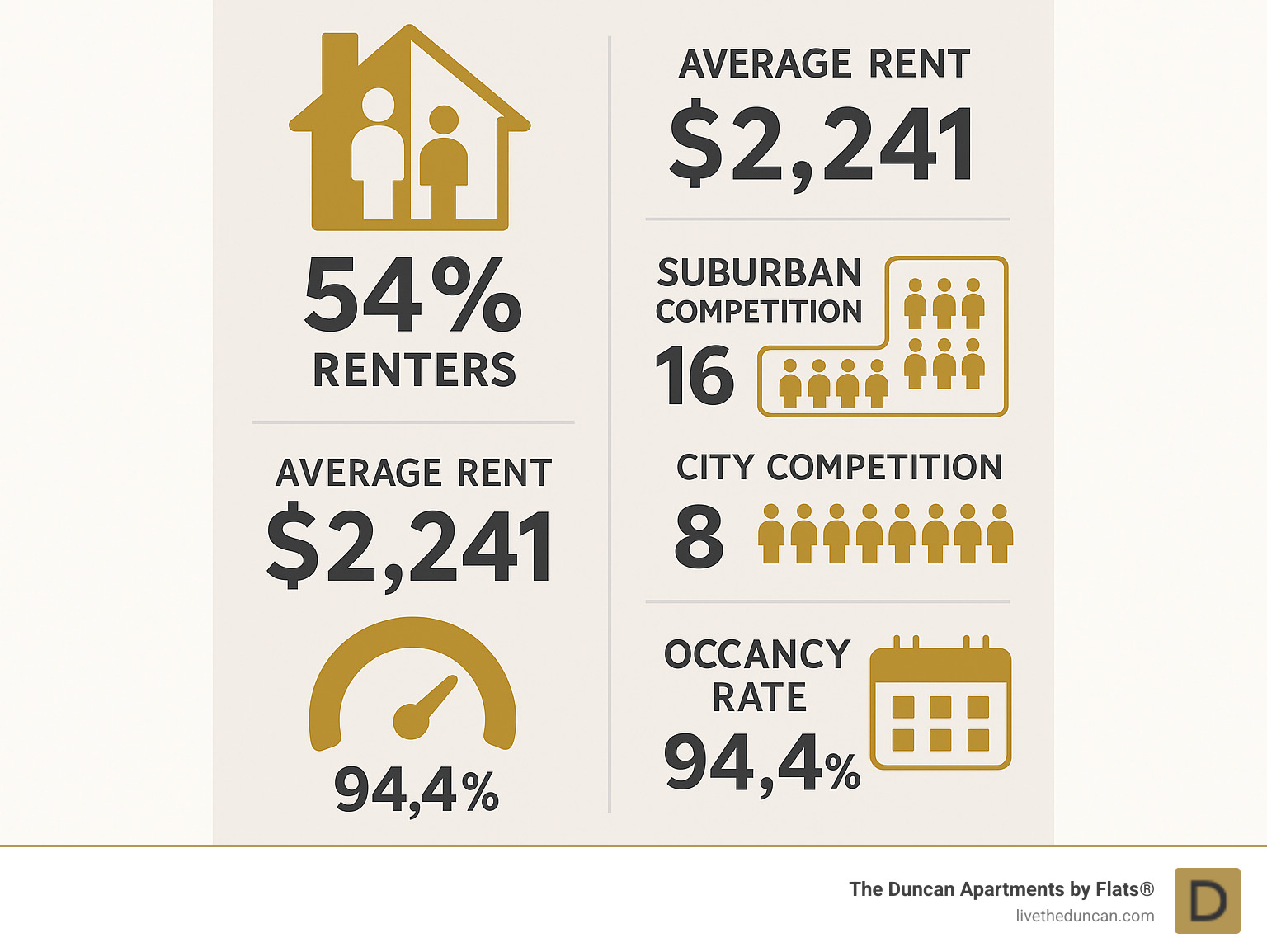
Understanding the Current Chicago Apartment Rental Market
The Chicago apartment rental market has become competitive, with average rent at $2,241 for apartments measuring around 748 square feet. The median rent across all property types is $1,957, making Chicago the 29th most expensive large city in the United States.
What makes Chicago unique is its diversity - from vintage walk-ups to modern towers. However, 58% of available apartments now rent for more than $2,100 per month, with year-over-year increases of 1.7% while national averages decline.
| Unit Type | Average Rent | Typical Size |
|---|---|---|
| Studio | $1,487 | 400-500 sq ft |
| 1-Bedroom | $2,278 | 600-700 sq ft |
| 2-Bedroom | $2,929 | 900-1,100 sq ft |
Average Rents & Unit Sizes in 2025
Studio apartments average $1,487 monthly (15% increase from last year), one-bedroom units run $2,278, and two-bedroom apartments average $2,929. Three-bedroom units command $3,547 monthly.
Renters pay approximately $3.00 per square foot citywide, with luxury downtown properties reaching $3.61 per square foot - a 2.27% year-over-year increase.
City vs. Suburbs: Affordability & Competitiveness
Suburban Chicago has become the most competitive rental market in the entire United States, with 16 prospective renters competing for each unit versus 8 applicants in the city. Occupancy rates hit 95.4% in suburbs and 94.4% in the city.
Suburban competitiveness stems from limited supply (new construction accounts for just one in 1,000 rental properties versus one in 200 in the city) and lease renewal rates of 70.4%.
A study published in the New York Times noted that "the unique difficulty finding a place in suburban Chicago was the result of a number of factors, including the growth of hip suburbs, big businesses relocating to the area, and high occupancy rates and slow construction."
Neighborhood Price Map—From Streeterville to Austin
Streeterville tops pricing at $2,940 monthly, followed by the Near East Side at $2,879. The Island offers the most affordable option at $689, while Austin averages $822.
Popular moderate-priced neighborhoods include Lakeview at $1,928, Hyde Park at $1,698, and Ravenswood at $1,486.

Market Dynamics: Supply, Demand & Timing
The Chicago apartment rental market has reached a tipping point where strong demand meets limited supply. High occupancy rates of 94.4% mean only one in twenty units sits empty, with vacant apartments filling within 40 days - two days faster than last year.
Construction activity sits 40% below recent peak levels, with only 8,100 units under construction (2.3% inventory growth versus 6.8% in other major markets). Lease renewal rates of 70.4% mean fewer people are moving out, creating a classic squeeze play.
What's Driving Demand & Limited Supply?
Business relocations continue bringing new residents, while the fastest-growing renter group is people aged 65-74. Property tax assessments have increased 46% or more in some neighborhoods - Rogers Park saw values jump from $145.63 million to $213.04 million in one year.
Financing challenges with mortgage interest at 10-13% make new development less attractive, while high construction costs further limit supply.
Scientific research on urban migration provides context for these demographic shifts.
Best (and Worst) Times to Apartment Hunt
Prime rental season (May-September) offers maximum inventory but peak competition and highest prices. Winter months (December-February) provide minimal competition and lowest rents (10-15% below peak) but limited inventory.
Shoulder seasons (March-April, October-November) offer moderate competition and reasonable pricing. Start your search 30-60 days before your desired move-in date.
Studio Apartments in West Loop Chicago
Navigating Applications, Costs & Lease Renewals
The Chicago apartment rental market has transformed apartment hunting into high-stakes competition. Application fees range $40-$75 (non-refundable), credit scores need 650+ minimum (700+ preferred), and income must be 3x monthly rent.
Desirable units disappear within 3-10 days, with landlords expecting decisions within 24-48 hours.
Application Checklist & Competitor-Beating Tips
Prepare: recent pay stubs (2-3 months), tax returns, bank statements, employment verification, landlord references, personal references, government ID, and renter's insurance.
Income requirement of 3x monthly rent can use qualified co-signers if needed. Successful renters apply to 3-5 choices simultaneously and offer slightly above asking rent or longer lease terms.
Chicago Apartment Lease Agreement
Hidden Costs: Taxes, Utilities & Amenities
Property tax increases (46%+ in some areas) get passed to renters. Bundled utilities cost $25-$150 monthly. Parking runs $75-$200 monthly ($300+ downtown). Pet owners face $50+ monthly pet rent plus $200-$500 deposits.
Move-in fees typically range $350-$500, plus administrative and key fees.
Lease Renewal Rates & Negotiation
Existing tenants face 3.4% renewal increases versus 6.4% for new tenants. Start renewal discussions 60-90 days early, highlighting your reliability and positive tenant history.
Offering longer lease terms provides negotiating leverage. Given competitive market conditions, reasonable renewal increases often cost less than moving.
Amenities, Lifestyle & Renter Satisfaction
Chicago's rental landscape ranges from vintage buildings to modern high-rises with resort-style amenities. In-unit laundry, fitness facilities, and outdoor spaces top renter wish lists, especially during Chicago's weather extremes.
Popular Amenities & How They Influence Rent
Fitness centers add $386 monthly to rent - more than most annual gym memberships but valuable during brutal winters. Swimming pools add $348 monthly, becoming essential during sweltering summers.
Rooftop lounges add $200-$400 monthly but offer stunning skyline views. In-unit laundry adds $100-$200 versus shared facilities. Parking costs $75-$200 monthly (essential during winters).
Emerging amenities include EV charging stations, co-working spaces, and smart home features. Premium developments feature 24,000 sq ft outdoor sundecks and 1,100 sq ft dog parks.
Chicago Apartments with Best Amenities
Living in Chicago: Pros & Cons Rated by Renters
Pros: World-class food scene, 18 miles of lakefront trail, excellent public transportation, diverse cultural attractions, and strong neighborhood identities.
Cons: Harsh winters with high heating costs, property taxes 14.4% above national average, parking challenges, and crime concerns varying by neighborhood.
Despite challenges, Chicago offers incredible diversity from quiet tree-lined streets to busy urban corridors, making it possible to find your perfect Chicago experience.

Frequently Asked Questions about the Chicago Apartment Rental Market
What income do I need to qualify for an average 1-bedroom?
Most landlords require gross monthly income of $6,834 (annual salary ~$82,000) using the "3x rent" rule. Some accept 2.5x rent (~$68,340 annually) while others prefer 3.5x rent (~$95,676 annually). Qualified co-signers can bridge income gaps.
Beyond income, expect credit scores 650+ (700+ preferred), employment stability, and positive rental history.
How many applicants compete for each apartment today?
Chicago city: 8 applicants per unit. Suburban Chicago: 16 applicants per unit - officially the most competitive rental market in the United States, surpassing Manhattan and Brooklyn.
This competition means 24-48 hour decision timelines and perfect applications being essential, not optional.
When are rents expected to cool down next?
Significant relief isn't expected soon. Only 5,141 units are expected over the next four quarters versus 9,500 delivered previously. High interest rates (10-13%) and development costs limit new construction while 94.4% occupancy maintains demand pressure.
Most analysts expect rent growth to moderate rather than decline, with potential stabilization in 2025-2026 if construction increases and economic conditions remain stable.
Conclusion & Next Steps
The Chicago apartment rental market rewards preparation over procrastination. Success isn't about finding the "perfect" apartment - it's about understanding the competitive landscape and playing it strategically.
Your Strategic Roadmap
Start with realistic budgeting including utilities, parking, and fees beyond rent. Gather complete documentation now - pay stubs, tax returns, references, and employment verification. Research neighborhood price variations to find opportunities while others compete for obvious choices.
Time your search strategically - winter offers savings but limited selection, while summer provides maximum inventory at peak prices. Treat apartment hunting like a sprint - respond to listings within hours, schedule immediate viewings, and bring applications to every showing.
The West Loop Advantage
Properties like The Duncan Apartments by Flats® represent Chicago's rental evolution. Modern developments with comprehensive amenities solve practical Chicago living challenges - indoor pools during frozen winters, rooftop lounges for entertaining, and in-unit laundry during harsh weather.
The Action Plan
Set up rental alerts and check listings multiple times daily. Be flexible on move-in dates and specific streets, but stay firm on budget limits. Consider each rental as part of your longer Chicago story - whether putting down roots or using as a stepping stone.
The Bottom Line
Chicago's rental market is competitive but not impossible. Hundreds of people successfully find great apartments daily. The difference between success and frustration comes down to preparation, realistic expectations, and active participation.
The city's diverse neighborhoods, excellent transportation, incredible food scene, and cultural richness make the effort worthwhile. Your search might be challenging, but the reward is a front-row seat to one of the world's great cities.



